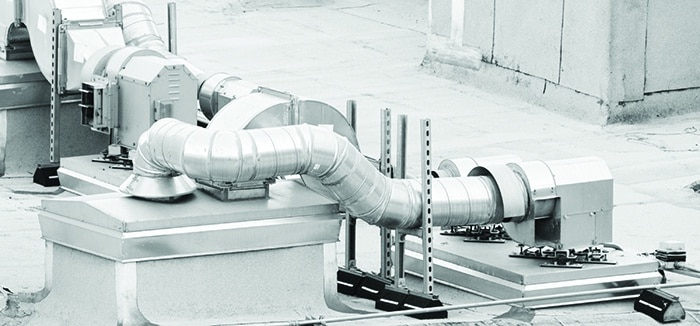

Numerous independent studies have found that the vast majority of classrooms fail to meet minimum ventilation rates.
Numerous independent studies have found that the vast majority of classrooms fail to meet minimum ventilation rates. This is not just a problem in older systems, but also in newer classrooms where ventilation levels are below the minimum required rates, including exceeding safe carbon dioxide levels. One of the nation’s larger school districts recently reported that 1 of 10 students and faculty have asthma. Researchers recommend periodic testing of HVAC systems and continuous real-time CO2 monitoring to detect and correct these problems.
The persistence of inadequate ventilation rates is of particular concern as states and provinces in the United States and Canada look to fully reopen schools and remove mask mandates this fall as vaccination rates increase in both nations.
Enter SMART and the industry-leading professionals at the National Energy Management Institute (NEMI), who have developed processes and systems to improve IAQ in schools, hospitals and buildings. The Ventilation Verification Program is a critical tool to make sure the air in schools, offices and other indoor spaces is safe to breathe.
The Ventilation Verification Program is a critical tool to make sure the air in schools, offices and other indoor spaces is safe to breathe.
The program outlines the steps that must be taken to make sure HVAC systems are operating properly. At the same time, SMART is pushing the federal government to adopt the program in its procurement policies, guidance and standards. SMART General President Joseph Sellers and SMART staff have met with agency heads and senior agency staff at the Department of Energy, Department of Education, Department of Transportation, Environmental Protection Agency, Council on Environmental Quality, Office of Management and Budget, General Services Administration and the White House about this issue and have spread the word to anyone and everyone, from Parent-Teacher Organizations (PTOs) on up.
At the end of May 2021, a SMART member participated in the first roundtable held by the Department of Education for school employees about school reopening. This was an important opportunity for us to talk about our work on IAQ in schools and push the Department of Education to issue specific IAQ guidance that follows the steps outlined in the Ventilation Verification Program.
SMART is not stopping there. We’re building widespread support for this issue. We’ve been meeting with stakeholders to develop diverse and broad support and share our resources. Groups include the American Federation of Teachers, the National Education Association, American Federation of School Administrators, National School Board Association, National PTA, the Actors’ Equity Association and Democratic Municipal Officials.
Related News
- New CSX conductor improvises to save a life
- SMART stands with Kilmar Armando Abrego Garcia
- Minnesota sheet metal worker: “I’m proud to be union”
- SMART News: Protecting Railroad Retirees’ Future
- More Than a Story: SMART-TD’s Women’s History Month Highlights Legacies in the Making
- SMART condemns executive order undermining collective bargaining rights
- Tentative Agreement Reached in Boston
- Local Chair Fights for His Members, and Now, a Title
- Nevada railroaders: ACT NOW to help pass a railroad safety bill
- Legislative win means more money for disabled rail workers in New Jersey